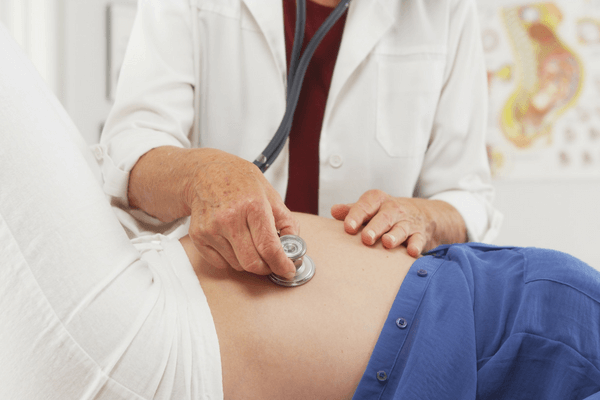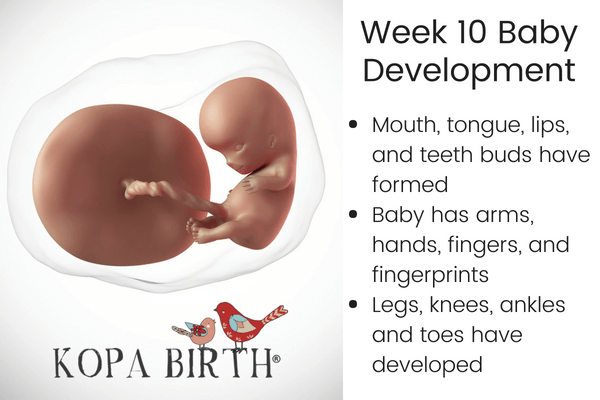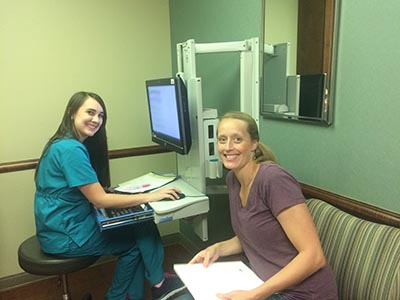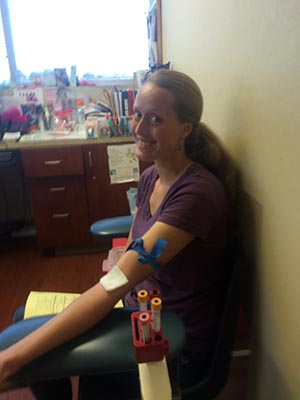
You’ve made it to week 10 and are now a quarter of the way through your pregnancy! Exciting things are happening with your baby, and most women have their first doctor’s appointment around week 10 of pregnancy. Let’s talk about what to expect.
Estimated reading time: 8 minutes

Something incredible has happened by week 10. Though it’s been just 8 weeks since your baby was conceived, he or she is structurally complete! While they’re not fully developed, all organs are formed. Baby is 1 1/4 to 1 3/4 inches crown to rump, and weighs about 0.18 ounce. (1) Your little one has:
If your baby is a boy, this is around the time that his body begins to produce testosterone, and physical characteristics begin to change. (2)

Your belly may not look pregnant yet, but by pregnancy week 10, many women have some roundness or fullness compared to their pre-pregnancy bodies. Whether you’re feeling rounder or bloated, or still feel just like you did a month ago, your experience is normal. Baby is growing fast, and if you don’t see a difference yet, the coming weeks are likely to change that.
Weight gain varies from person to person, and there’s a wide range of normal. If you’ve gained weight and think you shouldn’t have when baby is so tiny, don’t worry — your body is making many changes. If you have lost weight and wonder if that’s harmful, again, don’t worry! It’s not uncommon to lose a little, usually due to nausea. Average weight gain at this point is a few pounds, and if you’re a few pounds up or down, you’re probably doing fine. If you’ve gained more than a few, try to become more aware of your intake and avoid indulging in non-nutritious foods. (Don’t worry about trying to take any weight back off, though. Dieting during pregnancy is never a good idea.) If you’ve lost more than a few pounds, talk it over with your doctor or midwife just to be safe.

We talked about morning sickness in week 6; you may want to hop over there and read about it if you haven’t done so. If you’re among the three-quarters of women who experience pregnancy-related nausea, this is likely the most intense symptom you’ve encountered. The good news is that you may be around the peak of the difficulty, and it may begin to improve. For many women, it subsides by around the third or fourth month, and many say that the worst of it is at around week 9 or 10. Continue to eat small frequent meals, drink plenty, and choose easy-to-digest foods. Also, try things like ginger and peppermint to soothe your stomach.
If you’re experiencing severe vomiting, can’t keep down any food, or are showing signs of dehydration, it may be a more severe form of morning sickness called hyperemesis gravidarum. Talk to your doctor about how to keep yourself and your baby healthy.
Around week 10 pregnancy is probably when you’ll have your first prenatal care visit. This first visit will probably be one of your longest, as they learn about your history, do an examination, and run tests. Let’s take a look at specifically what to expect. (3, 4)

Your provider will ask questions about your history and your health. Give as much detail as you can, and answer all questions honestly… remember, they’re not there to judge you, just to record as much as they can so they best know how to care for you and your baby. Expect them to ask:
Your provider will examine you physically. You should expect:

Your provider will order many tests, some that will be done on your urine, and some that will be done on your blood. Don’t worry, they’ll only need a vial or two to run all of the tests. Tests they may run include:

Feel free to ask any questions you may have or ask for clarification if anything your provider says is unclear. Some people find it hard to talk to doctors; they may feel rushed, feel embarrassed by their questions, or feel intimidated. It’s important to have a good rapport with your doctor or midwife. So push yourself outside of your comfort zone if necessary, and make sure you feel heard and that you understand everything your provider says. This person will be one of your partners in this journey, and there’s a long way to go from week 10 pregnancy to delivery. It’s important that you feel comfortable with him or her as part of your team.
Don’t forget to come back next week to learn what to expect in week 11 of pregnancy.
Kopa Birth’s online childbirth classes allow you to prepare for a natural childbirth from the comfort of your own home, 24/7. Enroll today in our free online childbirth class to learn more about preparing for a natural hospital birth.
References:
You’ve made it to week 10 and are now a quarter of the way through your pregnancy! Exciting things are happening with your baby, and most women have their first